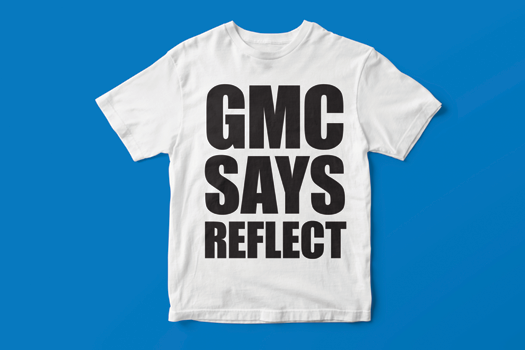GMC says reflection should be ‘less of a tick-box exercise’

The GMC has joined forces with eight other health regulators to underline the ‘common expectations’ of how healthcare professionals should reflect on their practice.
In a joint statement issued today, the regulators said teams should be encouraged to discuss incidents when things go wrong, while also stressing regulators would not request personal written reflections for investigations – but registrants can choose to offer them as evidence of insight.
According to the statement – called Benefits of becoming a reflective practitioner – reflection is also more effective if ‘professionals… proactively and willingly engage in the practice – making it less of a tick-box exercise’.
The new guidance has been welcomed by the Medical Defence Union, which said it should ‘help reassure doctors and medical students about some of the misconceptions about reflection and the contents of reflective notes’.
It said that while the statement explains doctors do not have to provide written accounts for investigations, the MDU believes ‘it can be helpful’ to show they have learnt from the experience.
The GMC released the statement alongside bodies including the Health and Care Professions Council, the Nursing and Midwifery Council and General Dental Council.
A GMC spokesperson said: ‘This joint statement sets out our common expectations for health and care professionals to be reflective practitioners, engaging meaningfully in reflection and the benefits it brings.
‘As well as expecting the people we regulate to be reflective practitioners, we also have a duty to consider our own actions, and their effect.
‘We are committed to improving how we provide assurance and protection to the public. We do this continuously in our work, through evaluation, to reflect and make changes in what we do and how we work. This statement reflects the principles set out in each regulator’s individual code of practice, professional standards or guidance on reflective practice.’
The MDU’s head of advisory services, Dr Caroline Fryar, said: ‘As the new statement points out, reflections should be anonymised and focus on what has been learned, rather than the identifiable details of those involved or the event. We hope the guidance will help reassure doctors and medical students about some of the misconceptions about reflection and the contents of reflective notes.
‘For example, the statement explains that the regulators will not ask for personal written reflections in order to investigate a concern against a registrant. However, the MDU’s experience shows it can be helpful for doctors to offer evidence of their reflections when responding to a GMC investigation, for example to demonstrate they have learnt from the experience.
‘We encourage members who are completing reflective notes after something has gone wrong or those who have received a request to disclose the document to others, to contact us for further advice.’
Earlier this month, a review commissioned by the GMC found the regulator should acknowledg its relationship with doctors has been ‘severely damaged’ after the Bawa-Garba case, and ‘must learn’ from it.
In the case, it was originally reported that Dr Bawa-Garba’s reflections were used as evidence against her – but it was later confirmed they were not submitted to court.
Pulse October survey
Take our July 2025 survey to potentially win £1.000 worth of tokens












